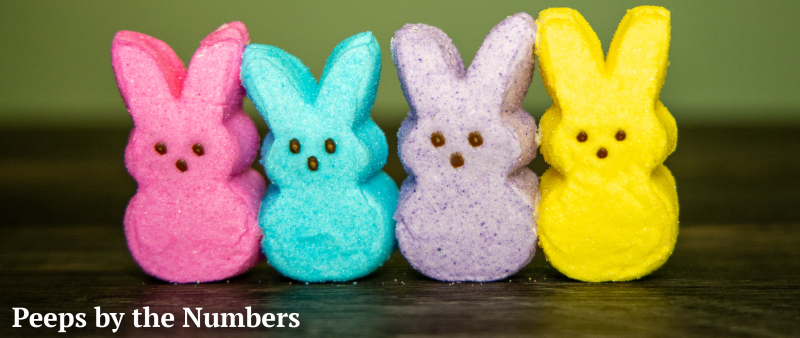Peeps by the NumbersApril 6, 2023
April 6, 2023
Posted on

It's just before Easter, which in my house means it's time for stale Peeps (I pre-stalify them by poking holes in the cellophane). Of course, in my house, it's also time for math, because it always is. Let's combine them!
Lower math—the math we all remember from elementary school—is about measuring what things are like when they're frozen at a point in time, like in a photograph. For example: Suppose three-fourths of my family likes stale Peeps, and I have 12 stale Peeps to distribute evenly. If we take a photo of all of the stale-Peeps-loving Rosses with their Peeps, how many are we each holding?
Higher math is more like a video: It’s about measuring what happens as things change. For example: Does a stale bunny Peep's higher surface-area-to-volume ratio make it explode faster than a stale chick Peep when you put them in the microwave and turn it on? Let's find out!
The first problem is crisp and clean, but the second problem is a lot more fun and gives you more information. So it is with math! When math becomes a tool in a child's hands (and brain), she is more powerful, and knows it. She's happier now, and has a lot more career options later.
The straightest path to success in math is to make numbers your kids' friends early. Fortunately, that's easy: All you have to do is measure... well, everything. Just close your eyes and point randomly, and you'll find something to measure. Find the joy in it and convey that joy to your kids so that the numbers never become stale. Measure not just the way things are one time, but how they change. For example:
My kitchen cabinet has three packages with 15 Peeps in each. Let's see how much THAT changes by Sunday.
—Deb

